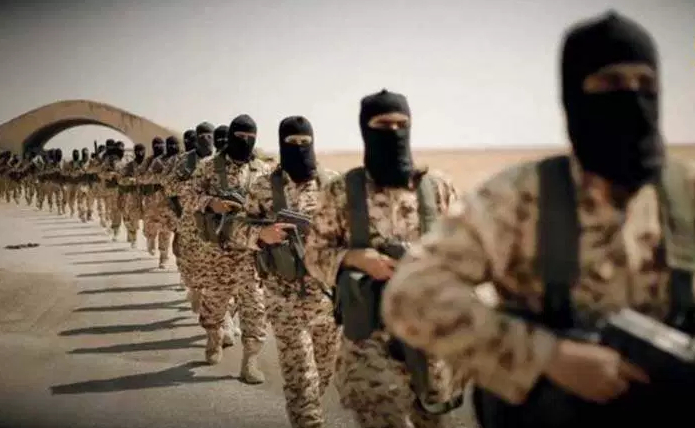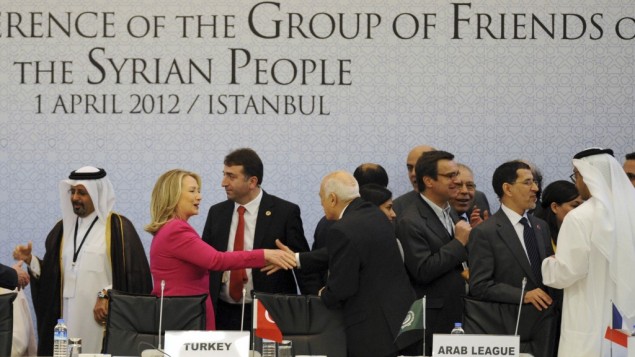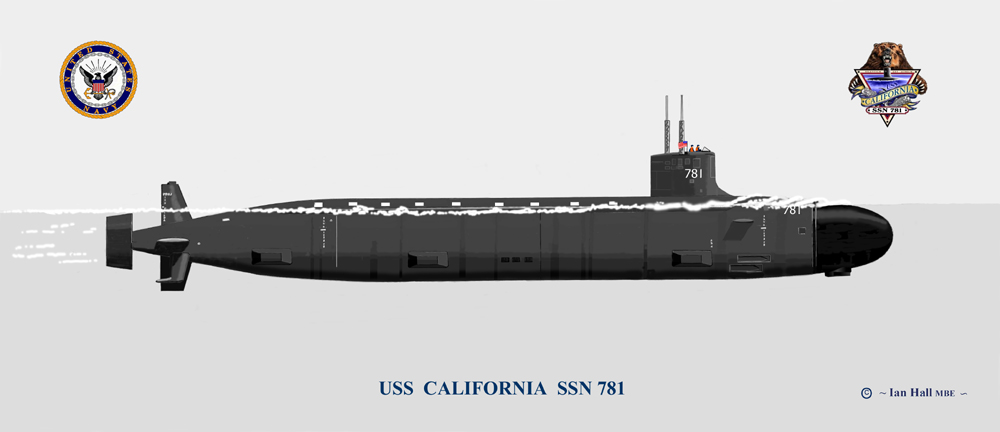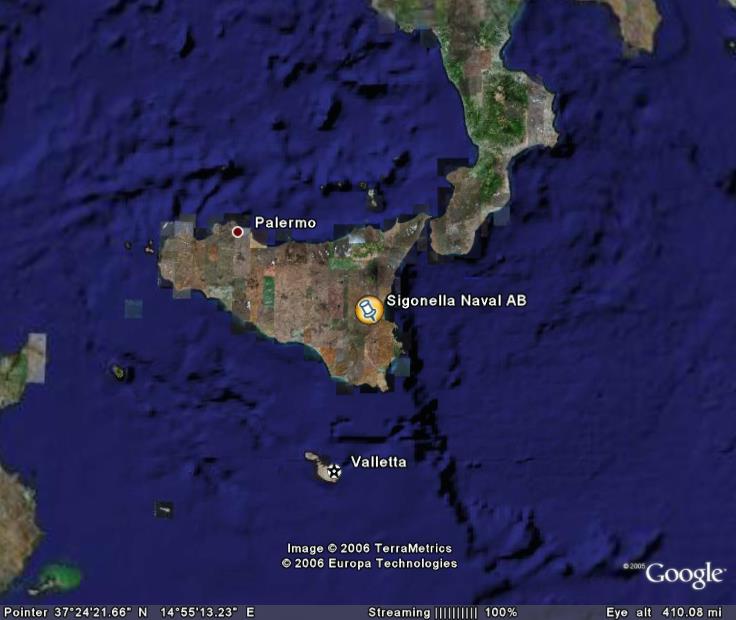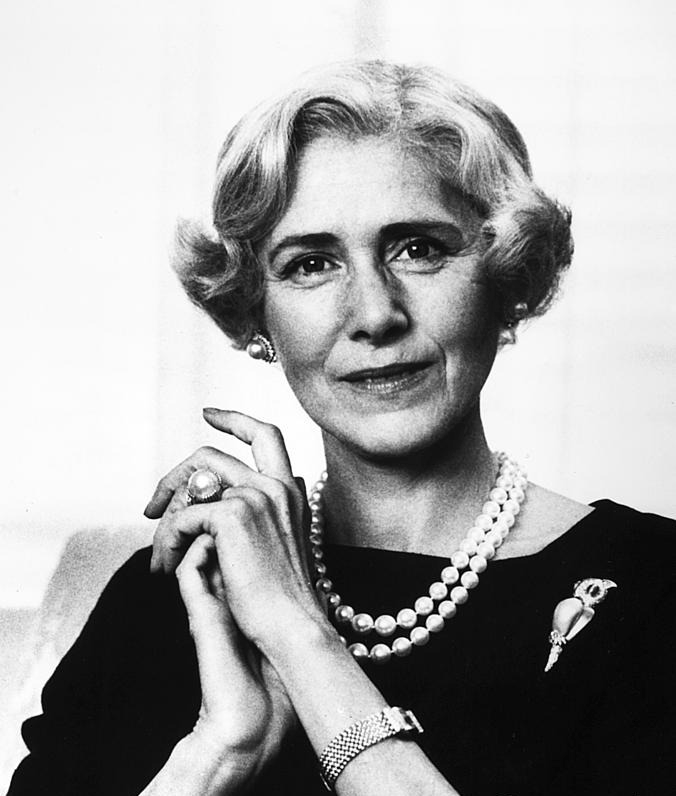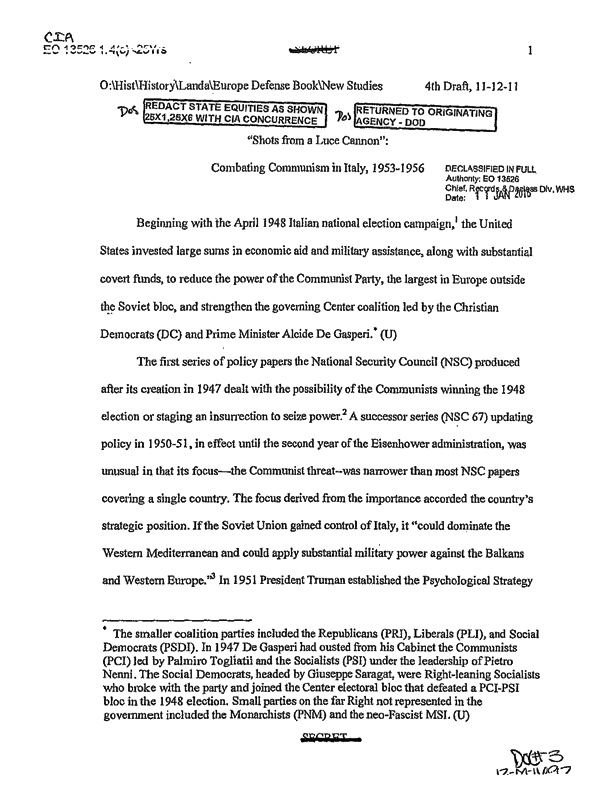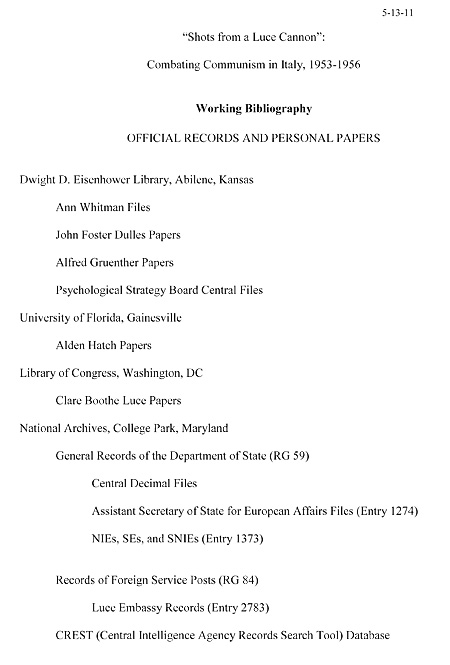This is Guns and Butter.
Monetary policy really defines the sovereignty of a country. It’s the ability of a country to actually finance its own developments through lending to the private sector, the building of public infrastructure and so on. And that is ultimately what economic sovereignty is all about. It’s the ability of a country to use its monetary instruments to finance development, and that ability is denied under the prevailing relations that these countries have with the International Monetary Fund and the World Bank and the creditors.
I’m Bonnie Faulkner. Today on Guns and Butter, Michel Chossudovsky. Today’s show: Neoliberalism and the New World Order.
Michel Chossudovsky is an economist and the founder, director and editor of the Centre for Research on Globalization based in Montreal, Quebec. He is the author of 11 books including The Globalization of Poverty and the New World Order, War and Globalization: The Truth Behind September 11th, America’s War on Terrorism and The Globalization of War: America’s Long War Against Humanity. Today we discuss global financial war as outlined in Professor Chossudovsky’s article “Wall Street Behind Brazil Coup D’état,” the role played by the IMF and World Bank in the economies of debtor nations, the Real Plan in Brazil, the imposition of the Washington Consensus, loss of national sovereignty, neoliberal institution funding of grassroots movements, the main corporate actors of the new world order, the function of propaganda, and the process of global impoverishment and the destruction of nation-states.
* * * * *
Bonnie Faulkner: Michel Chossudovsky, welcome, again.
Michel Chossudovsky: Delighted to be on the program on these very important issues of the new world order.
Bonnie Faulkner: In our recent program “Global Warfare: Is the US-NATO Going to Attack Russia?” you talked about global nuclear conventional and non-conventional war. Non-conventional war includes global financial warfare. Let’s take one of the most recent examples, regime change in Brazil. Your recent article, “Wall Street Behind Brazil Coup D’état,” lays out an argument that control over monetary policy and macroeconomic reform was the ultimate objective of the Brazilian coup d’état against Dilma Rousseff. What is the evidence?
Michel Chossudovsky: The evidence is the following. When Luiz Inácio da Silva, President Lula, set up his government back in 2003, he appointed a former CEO of a Wall Street bank, FleetBoston Financial Global Banking, to head the Central Bank of Brazil. It was in a sense like appointing the fox in charge of the chicken coop, so to speak, and what was disturbing there is that all the major appointments which the progressive Workers Party government (PT) implemented – namely the ministry of finance, the central bank, the Bank of Brazil, which is a development bank – they were held by neoliberals. In fact, the IMF had given its support to the Lula government and in fact they even congratulated the Lula government on its austerity measures and so on.
Henrique de Campos Meirelles, who was president of the Central Bank of Brazil and also former president of FleetBoston Financial Global Banking before he headed the Central Bank of Brazil, stayed in that position until the presidency of Lula’s successor, Dilma Rousseff. Dilma Rousseff, in fact, appointed a career Ministry of Finance official to head the Central Bank and Meirelles was dropped from the government.
Now, this was, from my standpoint, a very significant move because it was a message to Wall Street saying, “We decide on key appointments in the spheres of economy and finance.” And the coup led to the installation of a provisional government led by Michel Temer, i.e. an interim government. Essentially what they did from one day to the next was to appoint a new finance minister, who happened to be this notorious individual, Henrique de Campos 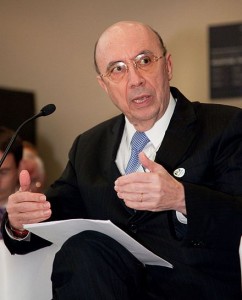 Meirelles, (right) the former CEO in Wall Street. He was appointed finance minister. Again, then, they put together a team of appointments to key positions.
Meirelles, (right) the former CEO in Wall Street. He was appointed finance minister. Again, then, they put together a team of appointments to key positions.
It’s not only the fact that Campos Meirelles is a Wall Street appointee; he’s also a US citizen. And Campos Meirelles then appoints his man to the central bank whose name is Ilan Goldfajn. Ilan Goldfajn was chief economist with one of Brazil’s major private financial institutions and Ilan Goldfajn happens to be an Israeli citizen, and he also happens to be a very close friend of Stanley Fischer, who was previously number two at the IMF, then he became governor of the Bank of Israel, and Stanley Fischer currently holds the number two position at the US Federal Reserve. He’s a vice-chair of the US Federal Reserve. For emphasis, both Ilan Goldfajn and Stanley Fischer have US citizenship. Goldfajn was head of the Central Bank of Brazil, was born in Israel, and he has dual citizenship. I’m not criticizing his citizenship but I’m focusing on the crony relationships between these individuals.
So now you have a central bank governor who has a close personal relationship with Stanley Fischer, number two at the Fed. Known and documented, it’s always the number-two man that calls the shots ultimately and that’s where all the policy formulations are made. So that’s the background.
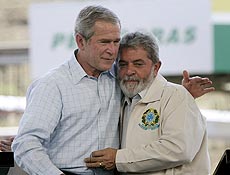
Lula and GWB
Now, where do, let’s say, left progressive movements come in? Well, they came in right at the outset of the Lula administration and European, North American, Latin American progressives applauded in chorus, celebrating the victory of a socialist government against the neoliberal agenda, and they said ‘victory against neoliberalism.’ It wasn’t a victory against neoliberalism; it was in fact the cooptation of a Workers Party leadership, not the grassroots, by Wall Street with a whole set of Wall Street appointments, which started with Lula and up to certain points was disrupted under Dilma Rousseff.
Bonnie Faulkner: How much power does the International Monetary Fund and the World Bank wield over Brazil’s economy?
Michel Chossudovsky: Let me open a parenthesis there. Very often people say the IMF, World Bank, they establish these harsh conditionalities on developing countries, they force them to implement these harsh austerity measures and so on and so forth. That is a correct description of IMF/World Bank activities. The structural adjustment programs that are imposed on developing countries are deadly. But it is not the IMF and the World Bank, which are in fact bureaucracies, which call the shots. The IMF and the World Bank are instruments of Wall Street. They’re instruments of the private banking nexus. The IMF and the World Bank, they have their independence, their Bretton Woods institutions, but legally they are connected to the United Nations. It’s a very hazy relationship but they’re supposed to be connected to the United Nations. The fact is they’re not.
But they don’t call the shots. It’s Wall Street that calls the shots, and it’s very convenient for Wall Street to have these Washington-based institutions which then, through intergovernmental relations, will establish links with governments. These are intergovernmental bodies.
Now, what I’m suggesting here is that as far as appointments are concerned, the IMF, the World Bank have a very significant impact. They’re part of the so-called Washington Consensus, which is also linked up to the Wall Street Consensus. We notice that very often it’s a former World Bank official who is appointed to the ministry of finance. That was the case in 1991 when Finance Minister in India, Manmohan Singh, who later became prime minister, was appointed to the Ministry of Finance and he implemented what was called a New Economic Policy, which led to devastation. It was supported by the World Bank.
In other words, the World Bank and the IMF have their people on the inside. I would say more the World Bank, because the World Bank can be in the ministries. It can be in the ministry of finance, in the ministry of agriculture and so on, and ultimately there’s a consensus in terms of policymaking which emerges.
But then if you’re talking about the impact that let’s say these loan agreements have, they’re devastating because they will say, ‘You have to cut your budget in all the social sectors, health, education, etc. You have to close down the hospitals, close down or privatize some of the schools, introduce user fees,’ and in effect what these institutions do is to precipitate countries into poverty, and they also contribute to the destabilization of the national economy. We see that in many countries.
In Venezuela, in fact, what they’ve done is very similar to what they did or has some relationship to what they did in Chile in 1973. They create conditions of collapse of commodity markets, scarcity of commodities, rising inflation, breakdown of distribution of goods, not to mention problems of urban security and organized crime, etc., etc. in Caracas. Those are engineered conditions. Of course, they’ve also created conditions which have bankrupted the state because the price of oil has collapsed from over $100 a barrel to something of the order of $30 a barrel, and this has contributed to the bankruptcy of the Venezuelan government.
Bonnie Faulkner: What is the Real Plan in Brazil?
Michel Chossudovsky: It is very important. Really, the Real Plan is a plan to essentially to dollarize all internal debt operations, so that the country doesn’t really have a monetary policy. It links the national currency to the dollar and it means that it has to be supported by Forex transactions to maintain that parity. And then it really means that whenever, let’s say, if you want to use your monetary policy to mobilize internal resource it turns out to be dollarized. It’s the same plan that they had in Argentina under Menem.
Bonnie Faulkner: You write that, “The objective of the coup d’état was to deny Brazil’s sovereignty in the formulation of macroeconomic policy.” Why is Wall Street or the United States against a nation’s sovereignty?
Michel Chossudovsky: That’s a very important question and it really has to do with monetary policy. Monetary policy really defines the sovereignty of a country. It’s the ability of a country to actually finance its own development through lending to the private sector, the building of public infrastructure and so on. To do that, you have to be able to increase the levels of internal debt. We do it in the United States and Canada and so on. We use debt operations to fund the infrastructure, roads, schools and hospitals.
But what is at stake in developing countries is that the currency is dollarized and in currency markets it’s upheld by dollar-denominated debts, which have to be incurred to support the currency. So that when you start expanding the money supply to finance development – it’s a difficult and complex mechanism – you really have to borrow in dollars, and really what it means is that your currency really is a proxy. It’s a dollarized currency, so that each time you want to build a road or a bridge or a hydroelectric complex using your domestic resources, you have to increase your indebtedness in dollar terms. In other words, the internal debt becomes a foreign debt.
That is ultimately what happened in Brazil with the Real Plan. The Real Plan established the real as the Brazilian currency on a peg with the US dollar, sustained by persistent propping up of the currency to maintain that parity. And what it meant is that Brazil was indebting itself in terms of dollars and each time it expands let’s say its levels of expenditure and so on so forth it ultimately has to borrow in dollars. What that means, to get back to the question, is that it’s Wall Street that controls monetary policy and all actions of internal development, funding infrastructure, schools, roads and so on, requires borrowing dollars to do it.
I’ll give one example of this. Vietnam, in the wake of its normalization with the United States, decided to initiate a major project of repairing the country’s main highway, which links the capital, Hanoi, in the north to Ho Chi Minh City, or what was formerly known as Saigon. It’s called Road Number 1. The east coast of the United States also has a road linking New York right down to Miami.
What happened is that the project was to repair the road, and for that they had to have an international tender by construction companies coming in – big multi-million dollar contracts – and to repair the roads they needed foreign capital. But in fact, what the foreign capital would do was to subcontract with local enterprises which then would build the road. What happens under that type of mechanism is the transformation of an internal debt into an external debt. You don’t need to bring in foreign capital to repair a road, or even to build a road. The technologies are there, the know-how is there, and you don’t need much investment in terms of capital or materials. It’s all local.
And that disturbs the mechanics. Immediately these financial institutions, once they normalize with the country they will say, ‘Okay, we’re going to lend you money under World Bank project to build a road but there has to be an offer of tender to international construction companies, etc. And then the money we lend you, you use it to pay these companies.” That’s how countries get indebted and they are unable under World Bank, IMF auspices to mobilize internal debt operations. I’ve seen this in numerous countries. There’s what is called the PIP, Public Investment Program, which is a list of projects and the World Bank ultimately goes through this list and they can choose which ones they want to finance, and they override the government in the choice of investment projects.
That is ultimately what economic sovereignty is all about: It’s the ability of a country to use its monetary instruments to finance development, and that ability is denied under the prevailing relations that these countries have with the International Monetary Fund and the World Bank and the creditors.
Bonnie Faulkner: Well then, it’s true that if a country can issue its own debt internally, then they can control that policy and the effects it has. But if the debt is externalized, then all the control is taken away from them, right?
Michel Chossudovsky: Precisely. You’ve formulated it exactly. That is the nature of that relationship. Once they are brought into the nexus of these international financial institutions, which monitor their investment projects and provide funding, then that funding is external, is dollarized, and in turn it is then subject to conditionalities imposed by the creditors of a policy nature. So they will say, ‘Oh. We helped you build that road and you now have a $50 million, $100 million debt. You now have to repay that debt.’ Then the government says, ‘Well, we don’t have any money to repay it.’ Then they will say, ‘Okay, we will lend you money but then you have to accept certain policy conditionalities which we will impose – in other words, close down your hospitals and your schools.’ That’s the way that these austerity measures work. Then they’ll say, ‘Well, you have to privatize.’ So in effect, the process of making countries indebted is the key to taking control of their sovereignty.
Now, in the European Union the mechanics are somewhat different. There’s the famous Maastricht Treaty, which goes back prior to the Eurozone, and the Maastricht Treaty establishes the basis whereby the individual member-states cannot fund their development from central bank operations. And ultimately then, of course, you have the European Central Bank, and this in a sense creates conditions whereby the individual member-states, particularly the weaker ones like Greece, Ireland, Portugal, virtually their sovereignty is derogated because they can’t use their resources. They don’t have a national currency to finance their own development. Then what happens is that their assets are taken over, privatization, impoverishment and so on so forth.
We see it happening in several European countries. Greece is, of course, a notorious example where this mechanism has occurred. And the European Central Bank in effect is playing a role which is in some regards similar to that of the IMF, in another context, of course. The IMF is acting in relation to Brazil, but the IMF more recently has also acted in relation to countries like Greece and Portugal.
Bonnie Faulkner: Right. And I think it’s important for people to understand that if a government creates its own debt, or creates its own credit, it can use that to help the economy and not to destroy it. For instance, let’s just say theoretically that the Fed in the US, let’s say it was part of the Treasury or even as it is now, privatized. If they issued no-interest loans to states or whatever they could use that to help the economy rather than destroy it, right?
Michel Chossudovsky: Well, absolutely. The thing is, it’s not money which creates real economy wealth. By real wealth I’m not talking about the wealth of individuals; I’m talking about infrastructure, schools, hospitals, roads and so on. The resources in the United States of America are there. It’s the real economy. It’s the people plus the resources plus equipment and so on which ultimately will lead to projects. Then you need mechanisms which will mobilize those resources, and they could be loans at zero percent interest or they could be, of course, commercial loans at very high interest.
There could be all sorts of impediments to the increase of public expenditure in support of projects because, again, the Treasury is ultimately under the surveillance of Wall Street, of the Federal Reserve, which in turn is also an appendage of Wall Street.
Monetary policy is central to any kind of societal project, and that’s why the debate, let’s say, on the democratization of monetary policy is so crucial, of the banking system in general. So that if we have a banking system which is controlled by JP Morgan Chase and Goldman Sachs and Citigroup and so on, we’re not going to necessarily be able to fund the things that we want to fund. We’ll be funding casinos, we’ll be funding entertainment complexes and hotels and so on, but we’re not going to be funding the basic social infrastructure which will uplift the standards of living of millions of people. I think that is the situation which characterizes US monetary policy.
I should mention that a large share of public expenditures is allocated to produce weapons. It’s the military-industrial complex, it’s the so-called defense contractors, and those again require … Well, it has to do with government debt, it has to do with spending patterns, it has to do with the Treasury, but again, when creditors call the shots and decide what has to be funded in terms of infrastructure, the tendency is to fund precisely areas such as defense rather than schools and hospitals.
Bonnie Faulkner: So then, using Brazil as an example, what is the effect then of imposing the Washington Consensus on Brazil? How does it benefit the US and what are the negative effects on Brazil?
Michel Chossudovsky: Well, the case of Brazil is certainly not unique. I think what distinguishes Brazil from other developing countries, particularly in Latin America, is that first of all it has a population of over 200 million people. It’s a large country in its own right, with tremendous resources and infrastructure and so on. But what characterizes this relationship let’s say between Washington/Wall Street on the one hand and Brazil on the other is the fact that by taking control of monetary policy, you ultimately take control of the real resources of a country.
The objective is not simply to occupy the central bank or the ministry of finance. The objective is ultimately to be able to take control over major areas of Brazil’s economic development process through privatization, through the buy-up of Brazilian companies and so on and so forth. We’ve seen this developing in the course, I would say, of the last 20 years, that US dominant financial and economic corporate interests are appropriating large sectors of this wealthy economy. We’re talking about resources, mining, forestry but also industrial development.
The name of the game is privatization and countries like Brazil – but let’s take another case, countries like South Korea, with tremendous industrial capabilities. When the IMF imposed its devastating reforms in 1997 during the so-called Asian Crisis, and they imposed it on South Korea. The objective was ultimately to confiscate real assets – literally, to confiscate real assets. But they didn’t only confiscate real assets, they took over banking, they took over research institutes. Ultimately through financial manipulation you acquire oversight on another country’s resources. You will find similar occurrences in other countries.
To get back to Brazil, Brazil is a very wealthy country and there’s lots of assets to be taken over. And we see that now the rules of the game are to take over assets. We see it in Greece now with the conditions imposed by German, French and American creditors on the Greek Ministry of Finance.
That is the order of the day – that it’s not only sovereignty which is at stake; it’s the plunder of national economies by international financial institutions leading to transfer of wealth whereby these US companies take over large sectors of the economy through a process of manipulation.
 Bonnie Faulkner: In your article, “Counter-propaganda as an Instrument of Peace: Fidel Castro and the Battle of Ideas, the Dangers of Nuclear War,” you write that, “A worldwide process of impoverishment is an integral part of the new world order agenda.” Describe what you consider to be the new world order.
Bonnie Faulkner: In your article, “Counter-propaganda as an Instrument of Peace: Fidel Castro and the Battle of Ideas, the Dangers of Nuclear War,” you write that, “A worldwide process of impoverishment is an integral part of the new world order agenda.” Describe what you consider to be the new world order.
Fidel Castro and Michel Chossudovsky, Havana, 2010
Michel Chossudovsky: Well, the new world order is a hegemonic project of ultimately conquering sovereign countries and in a sense corporatizing their governments. It’s the very structures of macroeconomic reform but it’s also the trade initiatives – the TTIP, the TTP, the two major areas of trade integration, the Atlantic and the Pacific, which ultimately transfer the powers of policymakers into the hands of corporations.
Now that, in effect, has already occurred. We don’t have independent governments, sovereign governments anymore, even in Western countries. We can go back to let’s say to the era of … Well, in Europe we might go back to Charles de Gaulle or in Britain we might go back to Harold Wilson, but those types of heads of state, heads of government are no longer around. In the United States we have individuals which are really the instruments of the corporate lobby groups. They’re not providing any leadership. I don’t think that Donald Trump or Hillary Clinton can provide any leadership with regards to decision making. They will abide by the instructions which are transmitted to them by their corporate sponsors. And then, of course, there’s also a consensus as to what is politically correct, as to what you do.
The new world order is a global capitalist system. It’s based on hegemony; it’s based on military power. I think one would also say that it is characterized by the outright criminalization of politics. The fact is that we don’t really have honest people in government anymore, very few. It’s also the fact that in the course of the last 20 or 30 years, all socialist and/or social democratic projects have been eliminated in one form or another. We can think of Nicaragua back in the early ‘80s. Of course, Guatemala, El Salvador. As well we can think of Vietnam obliterated through the Vietnam War, Cambodia, Indonesia from the early/mid-60s. We can look at Chile, Argentina, Mozambique, Angola, Algeria, numerous countries whose projects have been obliterated and destroyed. In other words, there’s no longer any nationalism and there’s no longer any reformist government which acts on behalf of its population.
There’s no longer what we might call representative government. That is the new world order. It’s the concentration of power by corporations. It is also not necessarily a smooth process, because those corporations are waging their own battle against one another. They’re merging, they’re buying up, they have manipulations directed against their competitors.
But ultimately what’s happening is that the world is being precipitated beyond poverty. It’s no longer an issue of mass poverty; it’s also an issue of total despair. In other words, we had an era where we talked about the globalization of poverty. I spent many years investigating that theme. But I have the hunch that now we’re talking about something quite different. It’s beyond the globalization of poverty. It’s not only the impoverishment of large sectors of the world population; it is precipitating people into total despair and it’s the destruction of the institutional fabric, the collapse of schools and hospitals which are closed down, the legal system disintegrating, borders are redefined.
Essentially this stage, which goes beyond impoverishment, is the transformation of countries into territories and we see it occurring in the Middle East. The objective for Iraq and Libya and Yemen is certainly to transform a country into a territory, and then you recolonize it. You’re in a very different environment to that which has prevailed until recently.
Bonnie Faulkner: What are the main corporate actors of the new world order?
Michel Chossudovsky: I would say, broadly speaking, that the main corporate actors of the new world order, first of all it’s Wall Street and the Western banking conglomerates, and that includes also the offshore facilities, the Cayman Islands and so on. We’ve talked a lot about that with the Panama Papers, but in effect all those offshore locations are controlled by the large banking institutions. And of course, it’s also linked up to money laundering and drugs and so on.
The military-industrial complex, at least, that’s what Eisenhower called it, regrouping the so-called defense contractors – they’re not defense contractors, they’re war contractors – the security, the mercenary companies, international outfits on contract to the Pentagon, the large private security companies such as G4S, which in some sense was also connected to the Orlando event.
Then you have, of course, the energy companies, the Anglo-American oil and energy giants. They’re very important. And then you have the biotech conglomerates which increasingly control agriculture and the food chain and Monsanto is of course, part of that. Monsanto, Cargill and the big corporate food companies are part of that.
Then overlapping with the biotech conglomerates you have Big Pharma, the large pharmaceutical companies, and I should say that those large pharmaceutical companies also overlap with the military-industrial complex because they’re also producers of chemical and biological weapons. Then you have, of course, the communications giants, the media conglomerates, which are part of the propaganda arm of the new world order.
There’s overlap between all of these various very broad categories, but I think that essentially, to summarize, Wall Street and the Western banking conglomerates, the military-industrial complex, the Anglo-American oil and energy giants, the biotech conglomerates, Big Pharma and the global media conglomerates.
Bonnie Faulkner: Describe the process by which local protest grassroots movements against neoliberal policy are co-opted by the very forces of neoliberalism.
Michel Chossudovsky: This is a very important question, because the consequences of neoliberalism, as we see in different parts of the world, create conditions of mass protest. What has occurred is that the seats of power of the new world order, primarily Wall Street, the financial conglomerates, they not only control the governments which are implementing these neoliberal policies, but they also indirectly control the protest movement, which is funded by the corporate tax-free foundations.
It’s not to say that all protest movements are funded by Wall Street but in effect, if we start to look into the whole nexus of non-governmental organizations, what we have is that many of these organizations, NGOs, civil society organizations historically linked to the protest movement are in fact funded by private foundations including the Ford Foundation, the Rockefeller Foundation, the McCarthy Foundation, among others. The Tides Foundation has a mandate to fund progressive organizations. It’s a multi-million-dollar foundation and it just so happens that the Tides Foundation is then receiving grants from several of the corporate foundations including the Rockefellers and the Fords. So what is at stake is that the entities which are opposed to neoliberalism are in a sense funded by neoliberalism.
You take the situation, let’s say, of Occupy Wall Street. Well, Occupy Wall Street on the one hand has a mandate to go against Wall Street, but then when you start to examine who is behind them, who is funding them, they’re funded by tax-free foundations. So Wall Street funds the protest movement against Wall Street. Very convenient.
Now, just to go back to Brazil, because it’s very important. At the inception of Lula’s government in 2002, 2003, the World Social Forum was created. And what were they doing? They were celebrating the victory of the PT government, of the Worker’s Party of Brazil over neoliberalism. Yet if we go back to the origins of the World Social Forum, well, the World Social Forum was funded by the Ford Foundation. And we know that the Ford Foundation has links to US intelligence – in fact, historical links to US intelligence. There we can quote a former president of the Ford Foundation who said, and I quote, “Everything the Ford Foundation did could be regarded as making the world safe for capitalism, reducing social tensions by helping to comfort the afflicted, provide safety valves for the angry and improve the functioning of government.” That is the mandate of the Ford Foundation which funds dissent, namely the people who don’t like the capitalist system who are protesting but at the same time, through this mechanism, the elite foundations establish the limits of the protest movement, and in a sense they manufacture dissent.
In essence, by providing the funding as well as the policy framework, these tax-free foundations are in a position to manipulate and to establish the boundaries of dissent. My experience is that the rituals of the elites consist in inviting so-called civil society leaders into their inner circles with a view to establishing dialogue and so on and so forth, and ultimately what this consists of, is essentially to co-opt them. And you co-opt them by financing them, and the World Social Forum is a good example of that. Many of these non-governmental organizations have been caught in the nexus of corporate funding and they are consequently not in a position really to challenge the fundamental goals of this new world order’s agenda.
Bonnie Faulkner: How does propaganda function as an integral part of the new world order? For example, is intelligence embedded in the mass media? And then, as well, could you talk about some of the alternative media?
Michel Chossudovsky: Well, certainly the mass media or the mainstream media has historical links to intelligence agencies. This is known and documented. It’s clear that the mainstream media is there to support a consensus with regard to foreign policy, it’s there to distort events, but it’s got to such an extent … The mainstream media hasn’t always been like that. If we go back to the Vietnam War, we had critical reporting on what was happening, up to a point. But if we start to look and see how does the mainstream cover the war in Syria? Well, they forget to mention that ISIS, the Islamic State, is supported covertly by United States.
They actually will admit it and then they will in a sense refute their own lies. They will admit it in so many words. They’ll say, ‘Oh, Turkey and Saudi Arabia are supporting the ISIS.’ But Turkey and Saudi Arabia are allies of the United States. Saudi Arabia doesn’t act without consulting Washington. So there we have a mainstream media which has evolved towards essentially presenting the lie as the truth, and that’s a fundamental relationship. Because when the lie becomes the consensus there’s no turning backwards.
And when I say the lie becomes the truth or the lie becomes the consensus, it’s to say the United States is waging a war against terrorists. Ah, but you failed to mention that the terrorists are actually funded by the United States and they were created by the CIA. Everybody knows that but at the same time we don’t really believe in it anymore, and we believe in the lie. So it’s not to say that the truth is obfuscated. It’s a different mechanism. It’s the truth which becomes the lie and the lie becomes the truth, so that people have to believe the lie even though they know that the lie is a lie. It’s not the truth, so to speak.
I’ll give you another example. We know that there are torture chambers in Guantanamo. Everybody knows it, and nobody is in the process of hiding it. But what the media will do is provide legitimacy to torture. It will also provide legitimacy to going in and killing people in Libya or assassinating the head of state or bombing … Well, Syria’s more complex because there they say that the bombing is done by the government against their own people, but of course, that lie doesn’t really hold up anymore.
But essentially that is what is at stake. It’s that the media, as an instrument of propaganda, has turned realities upside down. It has created a consensus which people dare not question. It upholds war as a humanitarian endeavor, as a peacemaking undertaking.
In effect what this means is that both politics as well as the media are criminalized, because we have criminals in high office which are involved in making war in the name of peace, and then we have a media which serves as propaganda to uphold those lies. And at the same time, it means that the media is complicit in the criminalization of the state. Without the media serving as an instrument of propaganda the military agenda would not have a leg to stand on. The whole construct of US foreign policy would collapse like a deck of cards if it were subjected to truthful analysis within the media and confrontation and so on – but that does not happen.
And there you have also the complicity of intellectuals and you have the complicity of the universities and the think tanks and so on. There’s a politically correct way of studying let’s say international affairs which is set. You don’t discuss the role of the United States in supporting terrorist organizations, you don’t underscore the fact that 30% of the population of North Korea was wiped out due to US bombings, you don’t say anything about the almost one million Indonesians who were assassinated on the orders of the CIA in the mid-60s. All of this, of course, is documented in the archives but it’s never the object of any kind of debate, and then history is erased. History is erased and we are led to believe that the United States is involved in a global crusade to instill democracy and Western values. There’s a lot of skepticism, however, which is unfolding in relation to media disinformation.
Now, you asked the question on alternative media, and alternative media, I think, is also going through a period of crisis because there are certain segments of the alternative media which in fact are controlled by the mainstream. There’s the whole issue of half-truths and half-lies. Then there’s the issue of saying, ‘Well, you know, we’re fighting terrorism,’ but if we had proceeded otherwise there wouldn’t be terrorist organizations. But still, again, the fundamental truths are not revealed in many of these alternative media formulations.
And what I think is very important is if we want to disarm a military agenda, we need a very cohesive counter-propaganda campaign. We have to wage that counter-propaganda campaign without being funded by those who are behind the propaganda campaign, so to speak. That’s the problem with some of the alternative media. They’re funded by corporate foundations so that they are in a sense very much limited in the things that they can say against the new world order. Again, if I’m thinking of the United States, the links that progressive groups have to the Democratic Party of course, is a constraint in their ability to let’s say take a position with regard to major issues of US foreign policy.
Bonnie Faulkner: Michel Chossudovsky, thank you very much.
Michel Chossudovsky: Well, delighted to be on the program again.
* * * * *
I’ve been speaking with Michel Chossudovsky. Today’s show has been Neoliberalism and the New World Order. Michel Chossudovsky is the founder, director and editor for the Centre for Research on Globalization based in Montreal, Quebec. The Global Research website, GlobalResearch.ca, publishes news articles, commentary, background research and analysis. Michel Chossudovsky is the author of 11 books, including The Globalization of Poverty and the New World Order, War and Globalization: The Truth Behind September 11th, America’s War on Terrorism, The Globalization of War: America’s Long War Against Humanity as well as co-editor of the anthology, The Global Economic Crisis: The Great Depression of the 21st Century. All books are available at GlobalResearch.ca.
Guns and Butter is produced by Bonnie Faulkner, Yarrow Mahko and Tony Rango.
Visit us at gunsandbutter.org to listen to past programs, comment on shows, or join our email list to receive our newsletter that includes recent shows and updates. Email us at [email protected]. Follow us on Twitter at gandbradio.
This transcript is a project of globalresearch.ca and gunsandbutter.org








 Boko Haram:
Boko Haram:
 While
While 









